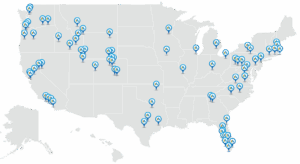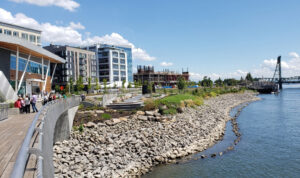Wind Farm Due Diligence and Environmental Permitting
Confidential Client • Tehachapi Wind Resource Area, Kern County, CA
Solution Overview
Client:
Confidential client
Business Challenge:
- Understand permitting requirements and gaps for a non-operational wind farm with plans for future reactivation
Solution:
- A comprehensive due diligence and permitting review to identify gaps and get the site into compliance
Results:
- Timely completion of the project to client satisfaction, allowing the transaction to proceed as planned and with an understanding of future compliance burdens (costs)
Challenge
The client was looking to purchase a non-operational wind farm and reactivate site operations. With complex permitting requirements, the client needed a consulting partner who could help identify gaps and address issues needed to repower the farm.
Solution
Apex performed a due diligence and environmental permitting review on behalf of our client, the prospective purchaser. Apex identified potential gaps in compliance documentation and developed recommendations and cost estimates for the property to regain compliance with regulations.
The federal, state, and county regulations addressed included the Federal Endangered Species Act (FESA), Migratory Bird Treaty Act (MBTA), Bald and Golden Eagle Protection Act (BGEPA), Section 404 of the Clean Water Act (CWA), California Fish and Game Code protections to various wildlife species and streams, California Endangered Species Act (CESA), Federal Aviation Administration (FAA) protections on air hazards, Federal Communications Commission (FCC) regulations on microwave beam transmissions, US Environmental Protection Agency (EPA) All Appropriate Inquiries (AAI) regarding environmental concerns, California Public Resources Code 5097.995‑6097.996 regarding cultural resources, and Kern County building permits and zoning ordinance. Apex reviewed all documents provided by the project proponent.
Each document was reviewed to identify the associated permitting authorities and associated law(s) or regulation(s). The purpose of each review was to assess completion of agency permitting requirements and to identify potential gaps that could cause future regulatory burdens after the facility became operational. This project was constrained by a tight timeline, requested by the proponent but also delays in receipt of pertinent documentation. Apex coordinated with multiple parties and ensured staff expertise and availability to meet both the technical scope and schedule.
Results
As previously mentioned, schedule was a constraining factor on this project due to the property transaction and timeframe for receipt of environmental documentation. Apex was able to meet the client’s needs through external communication with various stakeholders and internal staff allocation.






